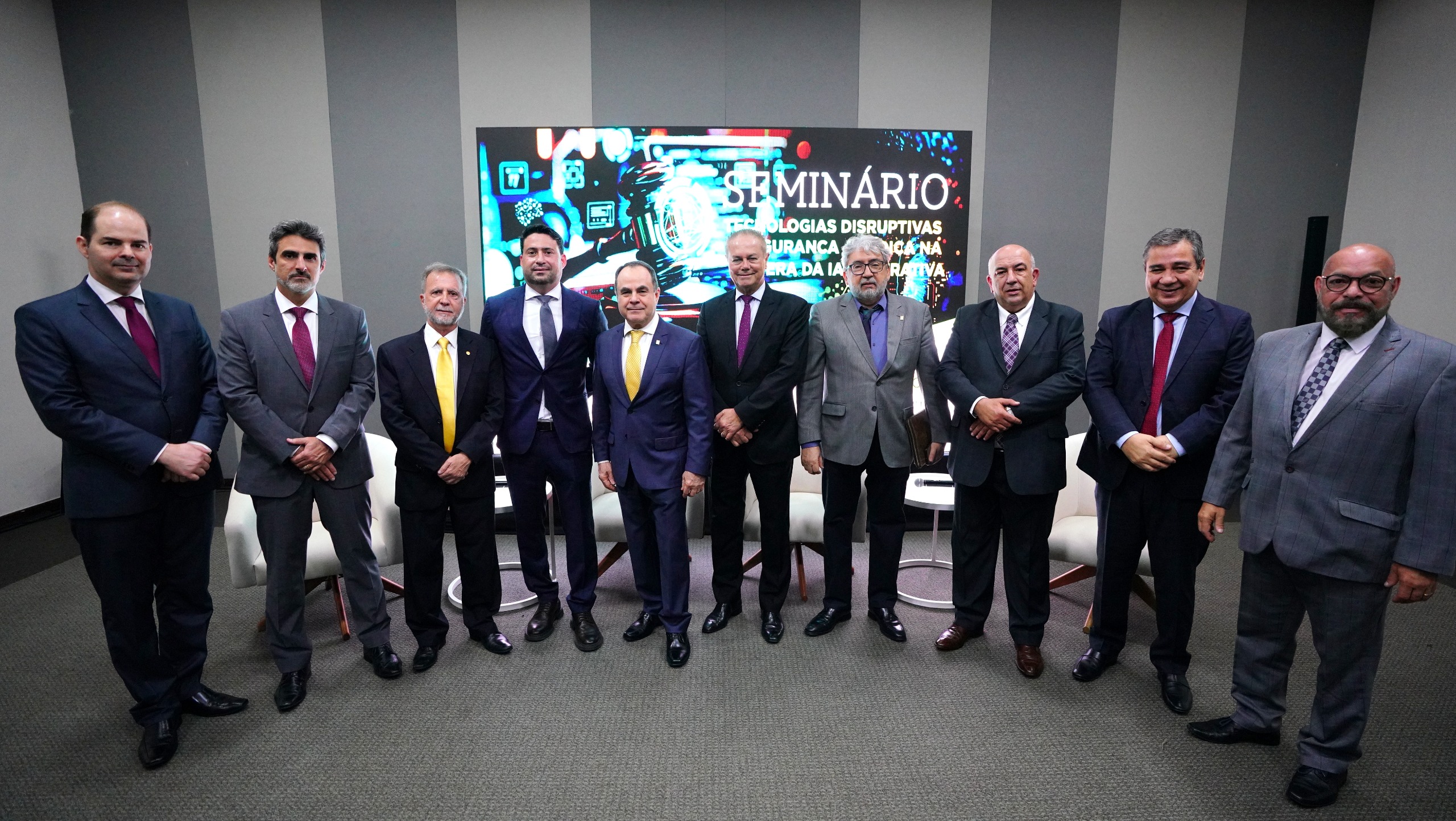
The Seminar on Disruptive Technologies and Legal Security in the Era of Generative Artificial Intelligence, promoted by the Superior School of the Judges of the State of Tocantins (Esmat) in partnership with the Permanent College of Directors of State Schools of the Magistracy (Copedem), brought together experts in the city of Brasilia to discuss the impact of artificial intelligence on society. The event, which was broadcast online, covered topics such as finance, health, education, gaming and betting, and AI training for the judiciary, with a focus on legal certainty and the challenges and opportunities of Generative AI.
At the opening, Justice Marco Villas Boas, President of Copedem and General Director of Esmat, stressed the importance of discussing and implementing AI in the legal environment, taking into account the ethical implications. “Our concern with the use of Artificial Intelligence in the judicial sphere lies in the fact that, although there is still no specific regulation, the tools being developed are rich and show promising results,” he said.
“We are mapping, together with universities and big techs, the various possibilities for the application of AI, always giving priority to fundamental principles and the promotion of the human person. We believe that artificial intelligence, when used responsibly and ethically, observing the necessary regulations and restrictions will not cause any damage to fundamental rights. On the contrary, it can contribute significantly to efficiency and justice in the judicial system,” he said.
Tributes
The opening ceremony included the presentation of the Feliciano Machado Braga Academic Merit Medal to Minister Ricardo Villas Bôas Cueva, of the Superior Court of Justice, in recognition of his relevant services to legal education in the country. Lawyer Ademir Piccoli, innovation activist for the justice ecosystem and CEO of J. Ex., was also awarded the medal.
Panels
The panels of the Seminar covered topics such as the use of AI in the prevention of money laundering, in health and education, and the regulatory challenges of AI.
Litigation Finance as a tool to promote efficiency and justice: with the participation of Justice Ricardo Villas Boas Cueva and João Mendes, partner at Prisma Capital. The panel discussed the use of AI in credit risk analysis and decision-making in legal processes.
AI in Health: applications and precautions so regulation doesn't prevent innovation: with Dr. Marcos Ottoni, Legal Director of CNHealth, and Dr. Fabrício Mota Alves, lawyer and advisory board member at Anatel. The panel addressed the challenges of regulating AI in healthcare, with a focus on data protection and patient privacy.
The Revision of the Superior Education Regulatory Mark and Government Schools: with Professor Jair dos Santos Júnior, Director of Regulation and Quality at ABED. The panel discussed the impact of AI on education and the challenges of revising the regulatory mark for superior education.
Digital Games - New Technologies, Education, Regulation and Communication: with Dr. Ricardo Feijó, partner lawyer at Feijó Souza Lawyers, and Dr. João Motta, CEO of Apostou.com. The panel discussed the use of AI in digital games and the regulatory challenges facing the sector.
Transforming the Brazilian Judiciary: the importance of AI training: with Dr. Ronan Damasco, National Director of Technology at Microsoft Brazil, and Dr. Carlos Augusto Marques, Relationship Manager for the Government - Judiciary and Public Security. The panel discussed the importance of AI training for the Brazilian judiciary and the challenges for the digital transformation of the sector.




_thumbnail_thumbnail.jpeg)
_thumbnail_thumbnail.jpeg)
_thumbnail_thumbnail.jpeg)
1_thumbnail_thumbnail.jpeg)
1_thumbnail_thumbnail.jpeg)
1_thumbnail_thumbnail.jpeg)
_thumbnail_thumbnail.jpeg)
_thumbnail_thumbnail.jpeg)
_thumbnail_thumbnail.jpeg)
_thumbnail_thumbnail.jpeg)
1_thumbnail_thumbnail.jpeg)
1_thumbnail_thumbnail.jpeg)
1_thumbnail_thumbnail.jpeg)
_thumbnail_thumbnail.jpeg)
_thumbnail_thumbnail.jpeg)
1_thumbnail_thumbnail.jpeg)
1_thumbnail_thumbnail.jpeg)
1_thumbnail_thumbnail.jpeg)
1_thumbnail_thumbnail.jpeg)
_thumbnail.jpeg)
_thumbnail.jpeg)
_thumbnail.jpeg)
1_thumbnail.jpeg)
1_thumbnail.jpeg)
1_thumbnail.jpeg)
_thumbnail.jpeg)
_thumbnail.jpeg)
_thumbnail.jpeg)
_thumbnail.jpeg)
1_thumbnail.jpeg)
1_thumbnail.jpeg)
1_thumbnail.jpeg)
_thumbnail.jpeg)
_thumbnail.jpeg)
1_thumbnail.jpeg)
1_thumbnail.jpeg)
1_thumbnail.jpeg)
1_thumbnail.jpeg)
